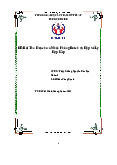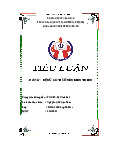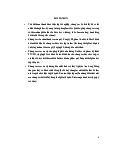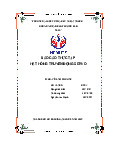











Preview text:
- What are some different types of fuel for vehicles?
- In what part of an engine does fuel ignite?
Match the name with the correct picture 1. Glow plug. 2. Combustion chamber. 3. Precombustion chamber 4. Gasoline engine 5. Diesel engine Unit 5 Vocabulary 1. Glow plug. 2. Combustion chamber. 3. Precombustion chamber 4. Compression ratio 5. Biodiesel 6. Maintenance 7. Durable 8. Fuel injection pump
Choose the suitable words 1. clean diesel / biodiesel A.
Plants are a main source for ________ . B.
______ was created because regular diesel had too many pollutants. 2. heat up / run on A.
When you start engines they __________ . B.
Most cars today ________ gasoline. 3. durable / maintenance A.
All vehicles require some _________ . B.
A _________ engine will last a long time. 4. gasoline / diesel A.
_________ engines do not use spark plugs. B.
_________ engines are the most common today. Read the advice column. •
Dear Mechanic, I want to buy my first car. I noticed that some engines run
on gasoline and others run on diesel. What's the difference? Todd in Yarmouth
Dear Todd, Both types of engines have combustion chambers. However, a
diesel engine doesn't have a spark plug. Instead, it uses hot, compressed
air to ignite the fuel. The air enters the chamber first. Then the fuel
injection pump forces fuel into the chamber. Some have precombustion
chambers or glow plugs that heat up the air to increase efficiency. In
gasoline engines, on the other hand, fuel and air are mixed before
entering the chamber, though most use a fuel injection pump as well.
Diesel engines also have a higher compression ratio,
Diesel has a bad reputation because it doesn't burn as clean as gasoline.
New clean diesel is much less polluting. And biodiesel offers a sustainable
fuel option. It's more expensive than gasoline, but provides better fuel
economy. Another thing to remember: diesel engines require less
maintenance and are more durable.
Choose the correct answers.
1. What is the purpose of the column?
A. to show ways to use less fuel
B. to state the benefits of diesel fuel
C. to explain the process of combustion
D. to compare different types of engines
2. How is a gasoline engine different from a diesel engine?
A. A gas engine releases more pollutants.
B. A gas engine uses spark plugs for ignition.
C. A gas engine needs more time to warm up.
D .A gas engine has a smaller fuel injection pump.
3. Which of the following is NOT a feature of a diesel engine?
A. Air and fuel mix before entering the chamber.
B. It is more durable than a gasoline engine.
C. It doesn't burn as clean a gasoline engine.
D. Gasoline cannot be used in it.
Place the words and phrases under the correct heading
Fuel injection pump – compression ratio – glow plug –
combustion chamber – precombustion chamber
Gasoline and Diesel engines Diesel engines only
Listen and complete the conversation
Buyer: I'm thinking about buying a car with a diesel engine, but I'm not sure if it's for me.
Salesperson: Well, what attracted you to diesel engines 1 ____ ___ ___ ____?
Buyer: I've heard they're more 2 ____ ____
Salesperson: That's their main advantage. 3 ____ ___ ___ that fuel costs more.
Buyer: But the increased fuel efficiency 4 ____ ___ ___ that, right?
Salesperson: Absolutely. 5 ____ ___ ___ that diesel engines are more durable.
Buyer: That should save me money on maintenance 6 ____ ____ ___ _____
Salesperson: Exactly. You don't have to take them to the mechanic as often.
Buyer: That's good, though I am concerned about one thing. Aren't they dirty engines?
Salesperson: Not the newer ones. Some can even run on biodiesel.
Buyer: I'm thinking about buying a car with a diesel engine, but I'm not sure if it's for me.
Salesperson: Well, what attracted you to diesel engines 1 in the first place?
Buyer: I've heard they're more 2 fuel efficient
Salesperson: That's their main advantage. 3 A down side is that fuel costs more.
Buyer: But the increased fuel efficiency 4 makes up for that, right?
Salesperson: Absolutely. 5 Another plus is that diesel engines are more durable.
Buyer: That should save me money on maintenance 6 in the long run
Salesperson: Exactly. You don't have to take them to the mechanic as often.
Buyer: That's good, though I am concerned about one thing. Aren't they dirty engines?
Salesperson: Not the newer ones. Some can even run on biodiesel. SPEAKING
A: I'm thinking about buying a car with a diesel engine, but I'm not sure if it's for me.
B: Well, what attracted you to diesel engines in the first place?
A: I've heard they're more fuel efficient
B: That's their main advantage. A down side is that fuel costs more.
A: But the increased fuel efficiency makes up for that, right?
B: Absolutely. Another plus is that diesel engines are more durable.
A: That should save me money on maintenance in the long run
B: Exactly. You don't have to take them to the mechanic as often.
A: That's good, though I am concerned about one thing. Aren't they dirty engines?
B: Not the newer ones. Some can even run on biodiesel. WRITING
Use the conversation above to fill out the buyer's notes on diesel engines. Diesel vs. NOTES Gasoline
-Type of engine: . . . . . . . . . . . . . . . .
-Pros: . . . . . . . . . . . . . . . . . . . . . .
. . . . . . . . . . . . . . . . . . . . . . . . .
. . . . . . . . . . . . . . . . . . . . . . . .
-Cons: . . . . . . . . . . . . . . . . . . . . .
. . . . . . . . . . . . . . . . . . . . . . . . .
. . . . . . . . . . . . . . . . . . . . . . . . . . . . . . . . . . . . . .




